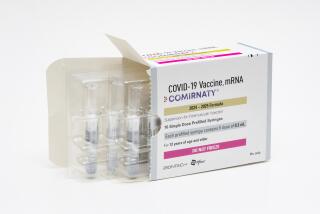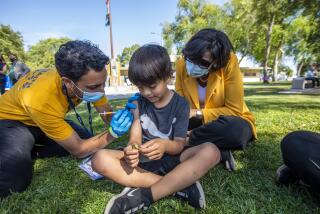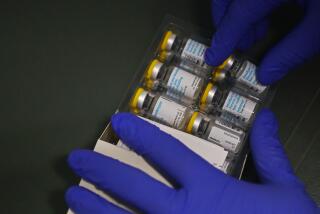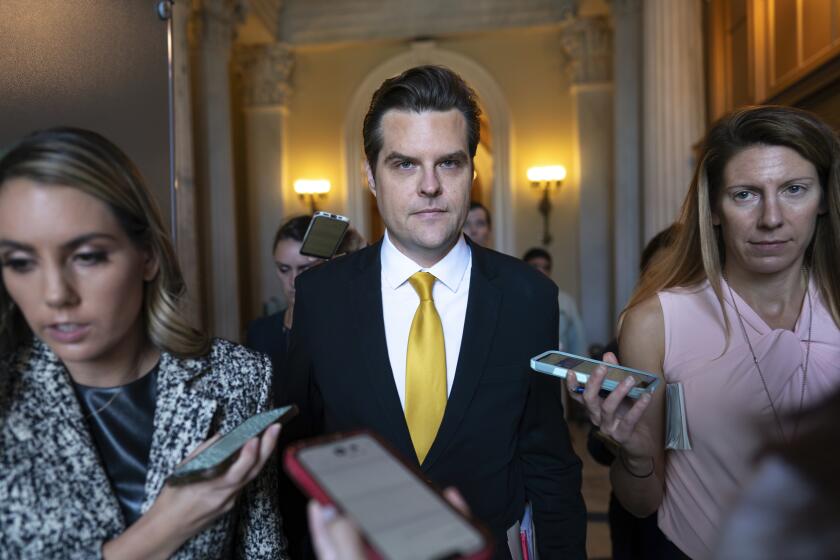Editorial: A COVID-19 vaccine doesn’t exist yet, but already people don’t trust it
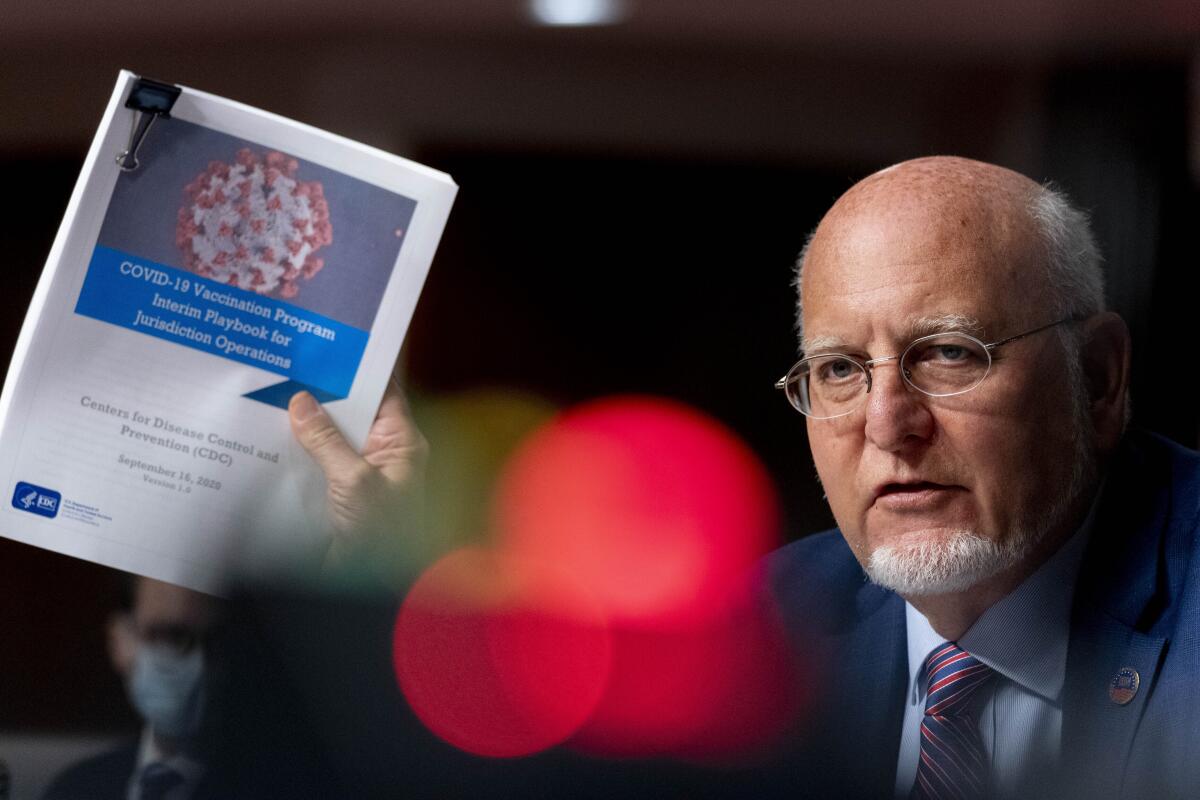
The Centers for Disease Control and Prevention on Wednesday unveiled plans to start handing out COVID-19 vaccines for free within a day of government approval. This could happen this year, though more likely in the next.
In other times, this news may have been cheered by the public, as eager as we all are for an end to this collective nightmare. Here were the nation’s trusted disease-fighting experts giving us some hope that a COVID-19 vaccine wasn’t too far away and, once the drug is deemed safe, the government would be ready to rush doses to the masses. Break out the champagne.
But these are not other times. This is 2020, a year in which there has been so many confusing messages coming from the White House and federal agencies about the COVID-19 pandemic, it’s hard to know what to believe about anything, let alone a vaccine that is still hypothetical. Regrettably, the CDC’s reputation as a trusted source of public health information has been badly damaged by political meddling.
And it doesn’t help that the story keeps changing. The same day the CDC released its distribution plan, the agency’s director, Robert Redfield, told a Senate Appropriations subcommittee that, actually, a vaccine isn’t likely to be widely available until next summer, though some doses might be available sooner. That seemed much more reasonable, if still optimistic, and not out of line with what scientists have been saying all along.
No, no, President Trump said later that day : A vaccine will be ready by late October or early November. Period. Redfield was “confused,” Trump said, and made a mistake in his estimate. (Who won’t Trump throw under the bus in his quest for reelection?) In fact, White House Chief of Staff Mark Meadows said, the administration plans to have 100 million doses of the vaccine ready in October and 300 million by January.
If Redfield is confused, it would be perfectly understandable. We are all confused. The White House has been consistently inconsistent on pandemic information from the start, and it’s unclear whether the statements on a vaccine timeline are just wishful thinking or, more ominously, indicate political ultimatums given to the drugmakers that received billions in U.S. aid for their vaccine trials.
The pharmaceutical companies working on vaccine candidates are evidently concerned about the mass confusion and its potential to sow public distrust. Earlier this month, nine of the leading drugmakers took the remarkable step of jointly pledging to the public that they will not cut corners and will release a vaccine only if it meets established safety and efficacy standards. Two companies, Moderna and
Pfizer, took the pledge to the next level Thursday and released internal documents detailing how they are conducting their late-stage coronavirus vaccine trials. The documents also contradict the president’s rosy predictions of having a vaccine by election day.
Judging from his public comments, Trump believes that anyone questioning the integrity of a “warp speed” vaccine development process is simply trying to undermine his leadership. The president tweeted Thursday: “The Democrats are just ANGRY that the vaccine and delivery are so far ahead of schedule. They hate what they are seeing. Saving lives should make them happy, not sad!” In a bit of verbal acrobatics, Trump has accused former Vice President Joe Biden of feeding “anti-vax” hysteria because Biden dared to suggest he wouldn’t trust a COVID-19 vaccine if Trump alone called it safe — he’d wait for the experts to make that call.
Politicizing vaccines is dangerous game for the president to play. Well before COVID-19 appeared, skepticism had been growing over immunizations used safely for decades, leading to a drop in immunization rates and a spate of measles outbreaks. Now, polls show that many Americans are wary of a COVID-19 vaccine developed so quickly, and they may choose not to get immunized rather than take the risk of experiencing harmful side effects. And heaven help us all if a future COVID-19 vaccine is harmful, which is always a possibility and why surveillance of vaccines continues even after they get regulatory approval. It could do immeasurable damage to public health for decades to come.
One day, once all this political nonsense is over and 2020 is a distant memory, we will marvel at the remarkable feat of science and international collaboration that produced not one but several candidates for a vaccine against a virus less than a year after it was identified. We just hope that story ends with a safe vaccine that Americans could trust.
More to Read
A cure for the common opinion
Get thought-provoking perspectives with our weekly newsletter.
You may occasionally receive promotional content from the Los Angeles Times.
